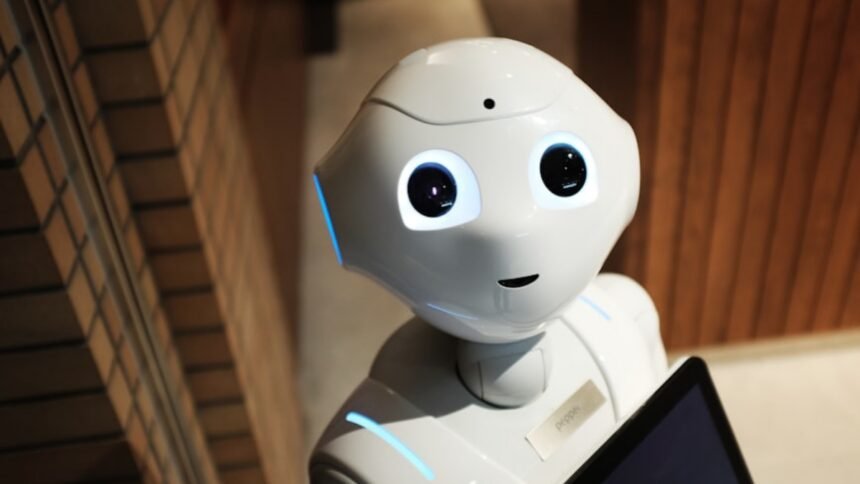The Rise of AI in Content Creation
AI technology is revolutionizing numerous sectors, with content creation being a particularly impacted domain. As digital content demands grow exponentially, AI tools are emerging as indispensable allies for writers, marketers, and creative professionals. These tools promise to revolutionize writing processes by assisting in idea generation, organizing thoughts, and even drafting copy. This is where resources like the best AI detector come into play, ensuring that the generated content doesn’t just meet speed and efficiency targets and maintains originality and authenticity. Forbes highlights AI’s profound impact across industries, allowing businesses to innovate how they approach content production and curation.
The consequences of this increase extend beyond mere convenience; they call into question the conventional notions of authorship and creativity. Artificial intelligence’s capacity to swiftly analyze extensive data allows it to produce insights at a rate that far surpasses human abilities. This technological advancement offers content creators a distinctive chance to perpetually enhance their approaches, developing narratives that resonate directly with their audience’s requirements.
Benefits of AI-Assisted Writing
As AI capabilities expand, businesses integrating these technologies into their workflows experience growing benefits. One of the most immediate advantages is the significant boost in speed and efficiency. AI tools can generate content drafts in a fraction of the time it typically takes a human, allowing writers to focus more on their work’s creative and analytical aspects. This includes developing business strategies, crafting compelling marketing campaigns, and enhancing content quality. This rapid drafting process is especially valuable in fast-paced industries such as digital marketing, journalism, and business development, where timely content can greatly influence decision-making and help seize market opportunities.
Furthermore, by enhancing creativity, AI tools provide new ways to overcome creative blocks. They can suggest unique phrasing, alternative structures, or even new ideas that content creators might have yet to consider. In this vein, AI is a facilitator rather than a replacement for creativity. Consistency and accuracy are also significantly bolstered through AI. With built-in grammar checks and style guides, AI ensures the content meets high professional standards and aligns with the brand’s voice and tone.
Challenges and Concerns
Despite its advantages, integrating AI into content creation has its challenges. Critics point to the potential overreliance on AI, which could inadvertently stifle human creativity. There’s a valid concern that AI-generated content might lead to a homogenization of creative work, where pieces need the unique voice that a human touch can provide. The growing volume of content AI accentuates this fear can produce, raising questions about the future role of writers and creative professionals.
Moreover, ethical considerations revolve around issues of intellectual property and originality. As AI tools become more prevalent, defining authorship becomes increasingly complex. Establishing guidelines that ensure AI enhances rather than detracts from the creative process is crucial. These challenges require ongoing dialogue and exploration to ensure AI’s role in content creation remains ethically and creatively aligned.
Balancing AI with Human Touch
- Define Clear Objectives: Content creators should pinpoint areas where AI can be most beneficial, such as data analysis or automated draft generation, while preserving tasks that require human intervention for nuanced decision-making.
- Maintain Originality: AI should complement, not replace, human writers’ unique insights and perspectives. Emphasizing human creativity ensures that content remains fresh and engaging.
- Regularly Review AI Output: Continuous assessment of AI-generated content is necessary to maintain high standards and adherence to brand values. This process ensures that AI remains a tool for enhancement rather than a substitute for creative exploration.
Case Studies: Success Stories
Several companies have already demonstrated the potential of AI in content strategy with remarkable results. For instance, a leading global marketing firm utilized AI to parse through vast amounts of consumer behavior data. The insights gathered allowed them to create more personalized, engaging content that boosted audience interaction and firm engagement rates. This case illustrates how strategically implemented AI can help marketers meet their audiences meaningfully while driving growth. These stories underscore AI’s role as a tool for faster production and a partner in crafting nuanced content that resonates deeply with its intended audience.
Future Trends in AI and Content Creation
The prospects for artificial intelligence in content creation indicate an even deeper integration of technology and creativity. As AI systems become more sophisticated, they’re expected to understand and reproduce human-like nuance and context more effectively. This ability will likely lead to even higher levels of personalized content and more targeted communication strategies.
Blending AI’s analytical prowess with human emotional intelligence could also yield new forms of storytelling, providing richer experiences for audiences. Future AI technologies will likely provide enhanced assistance in developing complex narratives, enabling creators to expand the limits of traditional storytelling in innovative ways.
Conclusion
In conclusion, while AI offers incredible possibilities for content creation, its integration must be carefully managed to complement rather than replace human ingenuity. By leveraging AI’s capabilities to enhance productivity while steadfastly preserving the essential human element of creativity, content creators can deliver innovative, engaging, and high-quality work. As technology and creativity evolve, the potential for enriched AI-human collaboration in content strategy appears boundless, suggesting a future where both can coexist fruitfully.

